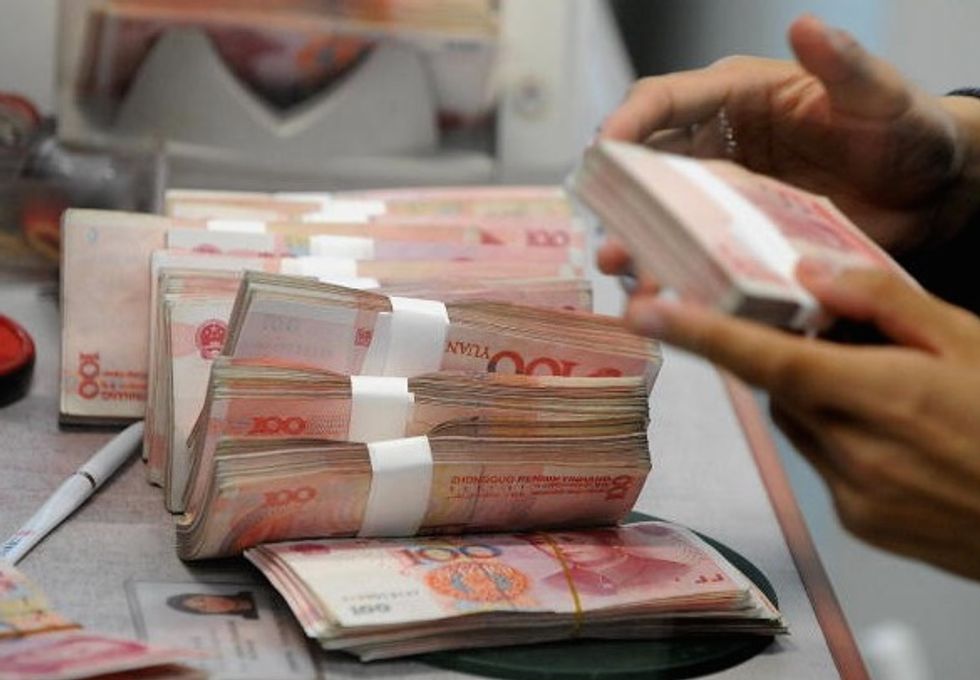Believe it or not, but 500 or so years ago, this was normal.
It used to be that China (along with India) was the engine of the global economy. A massive trade network stretched from Han Dynasty China to the Roman Empire, and it endured for centuries. Political or economic instability in China reverberated elsewhere. When China caught the Black Plague, so did Europe.
But this was all upended with the rise of European (and subsequently, American) powers. Much of China was colonized by foreigners, and the country suffered what it calls a “century of humiliation.”
The Communist Party of China was supposed to end this indignity. In classical Marxist fashion, they collected absolute political power in the name of implementing a utopian economic theory.
[sharequote align="center"]We need to give up on the idea of our economy being an escalator that runs forever upward.[/sharequote]
However, in classical Marxist fashion, they wielded that power with sinister incompetence. Mao Zedong’s “Great Leap Forward” – with its made-up agricultural output and make-believe backyard furnaces churning out steel – resulted in a famine that killed untold millions. The whole endeavor did more to stall China’s economic resurgence than to kick-start it.
Fast-forward to today, and the Communist Party of China has significantly backed away from Marxist economic theory while holding on tightly to the political power that was supposed to be used to carry out that theory. Nowadays, the Communist Party of China wields power with the aim of retaining the Communist Party’s power. And that means keeping economic growth going so that China’s 1.3 billion or so people don’t chafe at the fact that they are run by a small fraction of the Party’s 87 million members.
The crash in China’s stocks (and perhaps the Chinese economy more generally) demonstrates that they don’t know what they’re doing.
From debt-fueled stimulus to currency devaluation, China’s communist government has been trying desperately to keep its growth rate at 10 percent – or even just seven or eight – and failing. Once again, massive government intervention seems to serve as a short-term bandage that fails to fix the long-term problem: namely, that China’s economy must be less driven by exports, and more by an American-style consumer sector.
But that would mean less centralization of economic – and therefore, political – power, which is anathema to the communists.
 (MARK RALSTON/AFP/Getty Images)
(MARK RALSTON/AFP/Getty Images)
What does this mean for the U.S.?
We’re not facing economic collapse, but we are going to be swayed significantly as China continues to search about for its economic and political footing. And while we’re not as guilty as China, we have our own weakness for insisting that the government step in to fix this or that economic stumble.
But do we have any better handle on fixing these problems than China does?
No one in 2008 was suggesting, “Let’s own two car companies for a while, add trillions in public debt, and hold interest rates at zero for seven years, and then we’ll just see where we go from there”? Yet that’s what we’ve done, and we’re still not seeing light at the end of the tunnel.
There’s still supply and demand in the world. A week, a month, a year from now, there’ll still be buying and selling, and nothing that’s going on in the stock market today is going to drive us back to the Stone Age. In fact, as China becomes a consumer-driven economy, it will become a market for U.S. goods. And the people of China will soon give up on a party that props up its “princelings” while failing to keep the neighborhood chemical plant from blowing up.
But we need to give up on the idea of our economy being an escalator that runs forever upward. Because we keep expecting government to be the agent that provides us that dream escalator, despite the fact that they’ve proven over and over that they don’t know how to build it.
–
TheBlaze contributor channel supports an open discourse on a range of views. The opinions expressed in this channel are solely those of each individual author.


 (MARK RALSTON/AFP/Getty Images)
(MARK RALSTON/AFP/Getty Images)